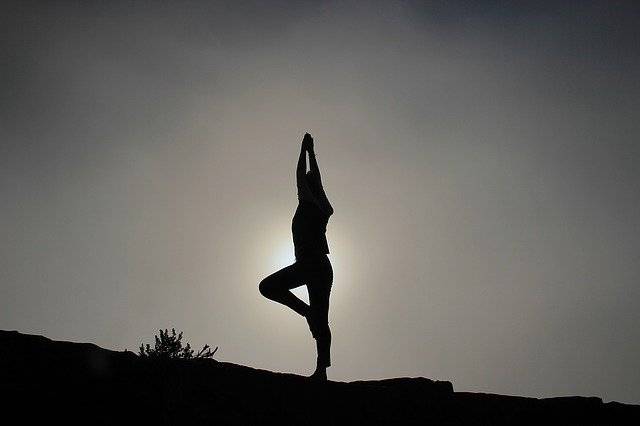Bikram Choudhury, a self-proclaimed yoga guru, published a book in 1979 entitled ‘Bikram’s Beginning Yoga Class‘, which contained a sequence for promoting wellbeing and energy levels, among others. His book contained twenty six yoga asanas and two breathing exercises selected, arranged and organised in a sequence. The sequence is required to be performed at 105 degree Fahrenheit to produce optimum results. Though the yoga poses were based on Hatha Yoga, Bikram claimed that he developed specific poses in a sequence to provide health benefits, and urged readers of his book to practice them in the order provided. He registered a copyright over his book with the US Copyright Office.
In 2009, Mark Drost and Zefea Samson, who underwent teacher training course with Bikram, started Evolation Yoga LLC to offer different types and styles of yoga. Their yoga offerings included ‘hot yoga,’ which included the sequence expounded by Bikram in his book. In 2011, Bikram sued Mark and Zefea in the US District Court for the Central District of California (“District Court”) for copyright infringement. The District Court ruled in the case that Bikram’s yoga sequence is not entitled to copyright protection. On appeal, the Court of Appeals for the Ninth Circuit (“Ninth Circuit”) affirmed the District Court’s decision.
The Ninth Circuit came to the conclusion that Bikram’s yoga sequence is not copyrightable because it is a method or process that fell within the scope of unprotectable ideas. When seen independently or as a compilation, the Court pointed out that the sequence of yoga poses and breathing exercises claimed by Bikram are aimed at achieving results in the form of wellbeing, energy, etc., which makes the sequence being claimed a process that is not copyrightable subject matter. The Court stated that copyright protection of a compilation of yoga asanas does not extend to the asanas themselves and their practice.
The Ninth Circuit differentiated Bikram’s yoga sequence from dance choreography, which includes static and kinetic successions of bodily movement in certain rhythmic and spatial relationships, but does not cover social movements and simple routines. The Court pointed out that choreography copyright does not extend to simple movements that form part of daily life and expression such as brushing, walking, and so on, even if they are arranged in a succession. However, specific dance movements and patterns may be copyrighted even if they are not accompanied by music and do not tell a story. The Court stated that Bikram’s yoga sequence did not qualify as a choreographic work as it fell outside the realm of performing arts, and is meant to achieve a practical result. It pointed out that the sequence, if at all, is the subject matter of patent protection.
The Court in this case differentiated between a sequence of movements and postures to achieve a result from a sequence of movements and patterns that form part of performing arts. In the Court’s view, a sequence primarily meant for health benefits is not copyrightable, but a choreography, which includes a sequence of dance movements meant for performing would be copyrightable. Choreography copyright will however not cover basic dance moves, simple routines and standard practices.
Reference
Bikram’s Yoga College of India v. Evolation Yoga, available at https://caselaw.findlaw.com/us-9th-circuit/1714982.html, visited on 12th December, 2019.
INTELLEPEDIA IP SEMINARS
Dancing with Intellectual Property
From dance choreography and settings to dance music and costumes, various aspects of dance can be protected as intellectual property. Protecting dance sequences and moves, videos and music, sets and costumes, personality attributes and names, and social media presence can help dancers commercialise their creative work and prevent its misuse.
Aimed at dancers, this specially designed session helps dancers understand how to protect their creativity and movement art. It provides insights into how their work can be commercialised, and what steps can be taken to prevent infringement of their work online and offline.
Faculty
Dr. Kalyan C. Kankanala
The session will be led by Dr. Kalyan C. Kankanala, a reputed entertainment law attorney in India. He has over the years provided IP consultation and advisory services for several performers, artists, authors and musicians.
Register here – https://www.townscript.com/e/dancing-with-intellectual-property-222404



